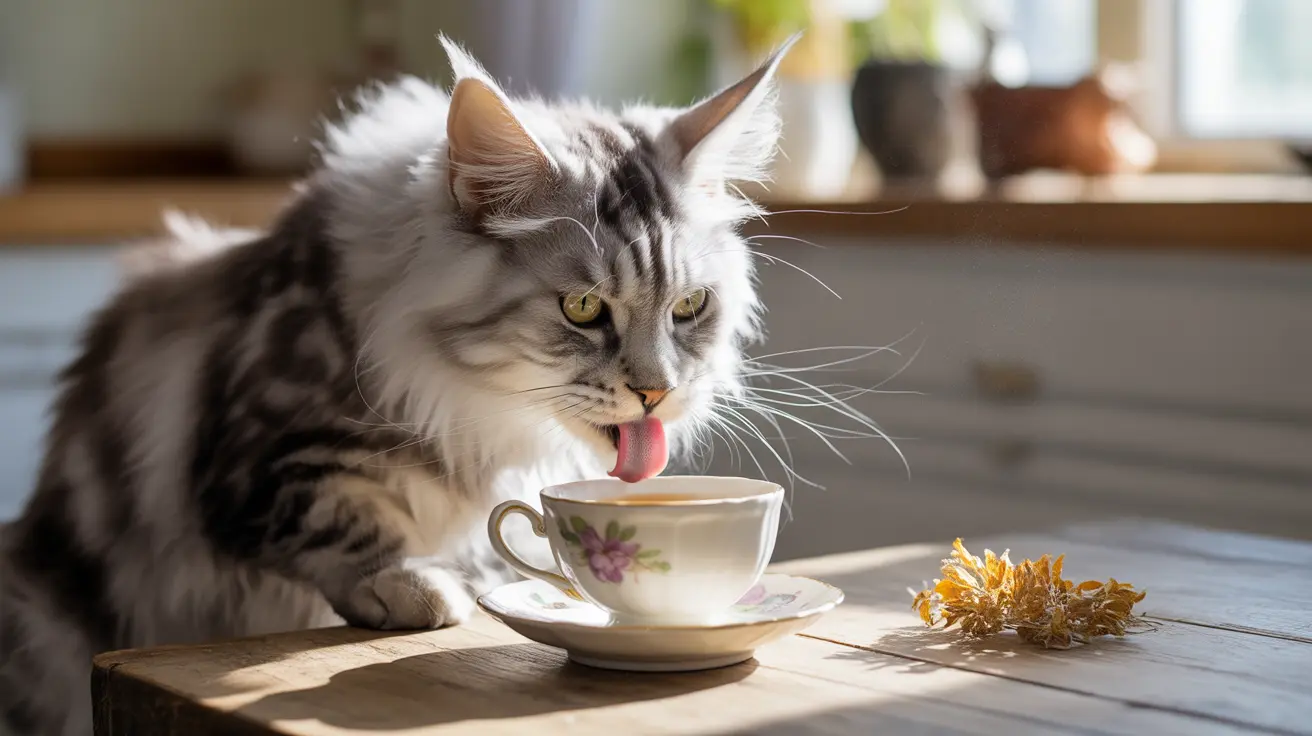Understanding FLUTD and Natural Treatment Options
Feline Lower Urinary Tract Disease (FLUTD) is a common yet concerning condition affecting many cats. While veterinary care is essential, many pet owners are increasingly turning to natural remedies (obat alami) to support their cat's urinary health, especially for ongoing management and prevention.
This comprehensive guide explores effective natural treatments for FLUTD, combining traditional herbal wisdom with modern veterinary insights to help your cat maintain optimal urinary health.
Traditional Herbal Remedies for FLUTD
Kumis Kucing (Cat's Whiskers)
Orthosiphon aristatus, commonly known as kumis kucing, is a traditional herb with proven benefits for urinary health. This gentle diuretic helps increase urine flow and reduce inflammation in the urinary tract.
To use kumis kucing safely:
- Prepare a weak tea using dried leaves
- Offer small amounts (1-2 teaspoons) daily
- Monitor your cat's response carefully
Cranberry and Bearberry Supplements
These natural ingredients work together to support urinary tract health:
- Cranberry extract prevents bacterial adhesion
- Bearberry provides natural antiseptic properties
- Both can be found in specialized pet supplements
Diet and Hydration Strategies
A proper diet forms the foundation of FLUTD prevention and management:
- Switch to wet food to increase moisture intake
- Add water fountains to encourage drinking
- Consider therapeutic urinary diets
- Monitor and maintain proper pH levels
Natural Preventive Measures
Implementing these natural approaches can help prevent FLUTD recurrence:
- Regular exercise to maintain healthy weight
- Stress reduction through environmental enrichment
- Clean, accessible litter boxes
- Consistent feeding schedule
When to Seek Veterinary Care
While natural remedies can be beneficial, certain symptoms require immediate medical attention:
- Complete urinary blockage
- Excessive straining to urinate
- Blood in urine
- Severe lethargy or pain
Frequently Asked Questions
What are the most effective natural herbal remedies (obat alami) to treat FLUTD in cats?
The most effective natural remedies include kumis kucing (cat's whiskers), cranberry extract, and bearberry. These should be used under veterinary supervision and as part of a comprehensive treatment plan that includes proper diet and hydration.
How can I safely use Kumis Kucing (Orthosiphon aristatus) and cranberry extract for my cat's urinary health?
Use kumis kucing as a weak tea, starting with small amounts (1-2 teaspoons daily). For cranberry extract, use pet-specific supplements with proper dosing guidelines. Always consult your veterinarian before starting any herbal treatment.
What dietary changes help prevent or manage FLUTD in cats naturally?
Key dietary changes include switching to wet food, ensuring fresh water availability, using pet fountains to encourage drinking, and considering prescription urinary diets. Maintain consistent feeding schedules and avoid sudden diet changes.
How much coconut water or other natural diuretics can I give my cat with FLUTD?
Limit coconut water to 1-2 teaspoons daily, and only use under veterinary guidance. Natural diuretics should be used cautiously as cats can be sensitive to fluid balance changes.
When should I use natural remedies versus seeking emergency veterinary care for a cat with FLUTD symptoms?
Natural remedies are suitable for prevention and maintenance but should never delay emergency care. Seek immediate veterinary attention for urinary blockage, severe straining, blood in urine, or significant behavioral changes.
Conclusion
Natural remedies can play a valuable role in managing FLUTD when used appropriately and under veterinary guidance. Combine these treatments with proper diet, hydration, and preventive care for the best results. Remember that natural approaches should complement, not replace, necessary veterinary care, especially in emergency situations.






